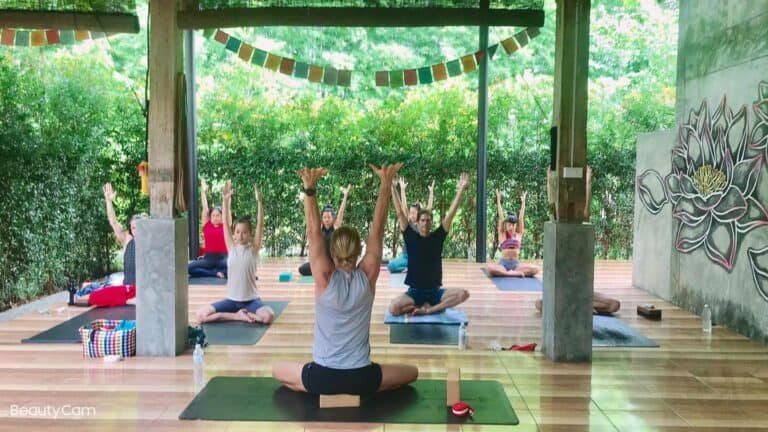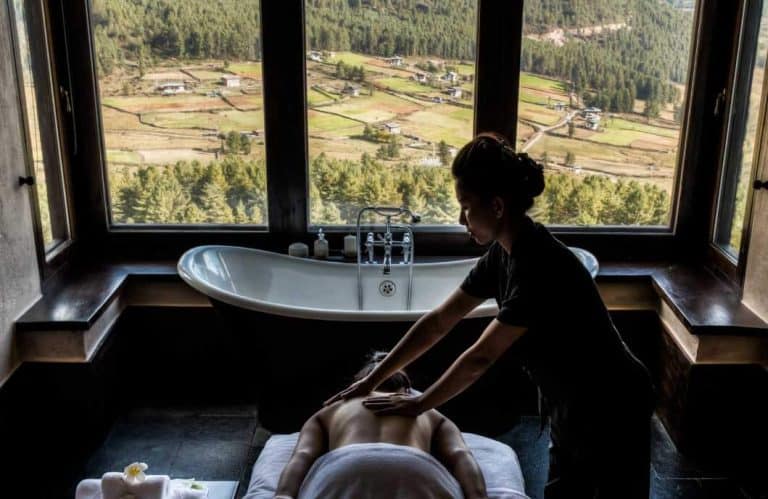In our fast-paced world, wellness is more important than ever. People are looking for ways to achieve a healthy, balanced lifestyle that helps them flourish in every way.
Enter the Seven Dimensions of Wellness: a holistic approach that considers the many aspects of well-being that are all connected. This perspective goes beyond just staying fit or eating right; it’s about nurturing every area of our lives for overall wellness.
This article will explore each dimension and offer practical tips for bringing balance and harmony into your life. By the end, you’ll clearly understand the 7 Dimensions of Wellness and how to incorporate them into your daily routine for a healthier, happier life.
What are the 7 Dimensions of Wellness?
The seven dimensions of wellness are mental, physical, social, financial, spiritual, environmental and occupational. Each dimension is important in achieving overall health and well-being.
| Mental | Physical wellness encompasses both our physical health – how well our bodies function – as well as our appearance or aesthetic fitness. To be physically well means eating nutritious foods, exercising regularly (both for strength, endurance AND flexibility), getting adequate rest and sleep AND managing chronic conditions such as diabetes or hypertension effectively. It also involves making safe choices regarding alcohol consumption and drug use. |
| Physical | Physical wellness encompasses both our physical health – how well our bodies function – as well as our appearance or aesthetic fitness. To be physically well means eating nutritious foods, exercising regularly (both for strength, endurance AND flexibility), getting adequate rest and sleep AND managing chronic conditions such as diabetes or hypertension effectively. It also involves making safe choices regarding alcohol consumption and drug use. |
| Social | Money matters can be stressful! But having a handle on your finances – knowing where your money comes from & where it goes each month, setting aside money for savings & investing it wisely – can help reduce anxiety surrounding financial matters. |
| Financial | Money matters can be stressful! But having a handle on your finances – knowing where your money comes from & where it goes each month, setting aside money for savings & investing it wisely – can help reduce anxiety surrounding financial matters. |
| Spiritual | A person’s spirituality is often reflected in their religious beliefs & practices but not everyone identifies with any particular religion or set of beliefs. For some people, spirituality may simply mean finding meaning & purpose in life; connecting with nature; experiencing awe & wonderment; expressing creativity … whatever brings a sense of peace, joyfulness or contentment! |
| Environmental | Everyone has an occupation, whether paid or unpaid. Most people spend a large portion of their waking hours at “work” so it stands to reason that satisfaction with one’s job can play a role in determining levels of happiness and stress. |
| Occupational | Money matters can be stressful! But having a handle on your finances – knowing where your money comes from & where it goes each month, setting aside money for savings & investing it wisely – can help reduce anxiety surrounding financial matters . |
Each dimension of wellness is interconnected, so focusing on improving one area can positively impact other areas as well! We’ll go into more detail on each of the dimensions below.
Mental Wellness
Mental wellness is so important for our overall well-being, yet it’s something that we often neglect. We live in a fast-paced world where it’s easy to get caught up in the hustle and bustle of everyday life and forget to take care of our minds.
Just like our bodies, our mental health needs regular attention and care. There are many simple things you can do to improve your mental wellness.
- Connect with Others: Social interaction is crucial for good mental health. Isolation and loneliness can lead to depression, anxiety, and other mental disorders. Make an effort to connect with family & friends regularly, join social clubs or groups that interest you, volunteer in your community… there are endless ways to get involved!
- Take Breaks: When we’re feeling overwhelmed or stressed, it’s important to take some time out for ourselves – even if it’s just a few minutes here & there throughout the day. Step away from work projects during lunchtime; go for a walk outside; read a book; listen to favorite music… do whatever makes YOU feel relaxed and recharged so that you can better handle challenging situations when they arise.
- Reduce social media use: Social media is anxiety-provoking, shortens our attention span, and stimulates our addictive nature as we constantly look for the next notification or alert. Limiting exposure can really have a positive impact on our mood.
Physical Wellness
Physical Wellness. When it comes to physical wellness, there are a few key things to keep in mind.
- Take care of your diet: What we put into our bodies directly impacts how we feel mentally and physically. Eating nutritious foods helps improve energy levels, mood, concentration, and memory recall – all key components of good mental health! Make sure to include plenty of fruits & vegetables in your diet along with lean protein sources such as fish or tofu; limit processed foods high in sugar & salt; drink lots of water throughout the day; and limit alcohol consumption.
- Exercise Regularly: Exercise is a great way to boost mental health! It helps release endorphins (the feel-good hormone), reduces stress, and can improve sleep quality. A moderate amount of exercise is the key – too much or too little can negatively affect mental health. Aim for 30 minutes of activity most days of the week; if you’re starting out, begin with 10 minutes and gradually increase your time as you become more comfortable.
- Get Enough Sleep: Sleep is essential for good physical and mental health. Most adults need around 7-8 hours of sleep per night. Ensure you’re getting enough shut-eye by establishing a bedtime routine and sticking to it as much as possible. Avoid caffeine late in the day, disconnect from electronics at least an hour before bedtime, and create a calming environment in your bedroom (think cool temperature, dark curtains/blinds).
- Develop good hygiene habits. Good hygiene is essential for preventing illness and staying clean and presentable.
By following these simple tips, anyone can improve their physical well-being!
Social Wellness
Social wellness is the ability to interact with others in a positive way and build healthy relationships. It’s about communication skills, empathy, and teamwork, amongst other things.
No matter where you are on your social wellness journey, remember that it’s an ongoing process that ebbs and flows throughout our lives. Here are some tips to help you nurture your social well-being:
- Make time for friends and family. Spending time with loved ones is a great way to relax and recharge. Whether it’s going for coffee, taking a walk, or just chatting on the phone, quality time with those we care about can make a big difference in our mood and overall well-being.
- Get involved in your community. There are many ways to get involved in your community, whether it’s through volunteering, attending local events, or simply getting to know your neighbors. Getting connected can not only help others but also give you a sense of purpose and belonging. Learning to work cooperatively towards a common goal can help create lasting bonds and achieve great things!
- Join a club or group. Clubs and groups provide an opportunity to meet new people who share similar interests. Joining one (or more!) can be a great way to expand your social circle while doing something you enjoy!
- Be yourself! One of the best ways to nurture your social well-being is to simply be yourself. We can build trust and create meaningful relationships when we are authentic and honest.
- Develop your social skills. This involves being able to effectively communicate your thoughts and feelings while also listening attentively to others. Get out and join some clubs that force you to get out of your comfort zone. Isolation from other humans is a common way to end up in a depressed state.
Remember, it’s an ongoing journey, so take things one step at a time and enjoy the ride!
Financial Wellness
Financial wellness is the ability to manage your finances to meet your needs and goals. It includes having enough money to cover your basic expenses, saving for future goals, and making choices that improve your financial well-being.
No matter our income level, we all need to be financially well to live happy, healthy lives. Financial stress can lead to physical health problems such as anxiety and depression. It can also impact our relationships and work life. When we’re not financially well, it’s hard to focus on anything else!
So how do you achieve financial wellness? Here are some tips:
- Make a Budget. Know where your money is going each month to ensure you’re spending within your means. There are lots of great budgeting apps out there that can help with this!
- Build Up an Emergency Fund. This will help you cover unexpected costs without going into debt or using credit cards. Start small – even $50-$100 can make a difference!
- Invest in Yourself. Don’t forget about taking care of yourself both physically and mentally. Consider investing in things like therapy or fitness classes if they’ll help improve your overall well-being (and remember – many employers offer mental health benefits!).
- Live Below Your Means. Spending less than you earn each month will help ensure that you always have extra cash on hand just in case something comes up unexpectedly.
- Prioritize Paying Off Debt. High-interest debt can drag down our finances over time, so it’s important to pay it off as quickly as possible.
- Stay Informed & Educate Yourself. Learning more about personal finance can empower us to make better decisions with our money. Check out books, websites, podcasts, etc.
- Seek Professional Help. If you’re feeling overwhelmed by your finances or don’t know where to start, seek a certified financial planner to help get you on track. Making small changes in our spending and saving habits can lead to big improvements in our financial well-being.
Spiritual Wellness
Spiritual wellness is about finding meaning and purpose in life. It’s about connecting with something larger than yourself and feeling like you belong to a community. There are many ways to nurture your spiritual wellness, including practices like meditation, prayer, journaling, volunteering, spending time in nature etc.
When we feel disconnected or lost in our lives, tapping into our spirituality can help us find our way again. Spiritual practice can also provide comfort during difficult times and act as a source of strength when we face challenges.
For some people, spirituality may be connected to their religion or faith tradition. For others, it may be more personal – related to their values or beliefs system. Regardless of how you define it for yourself, exploring your spirituality can help you live a more meaningful and fulfilling life.
Additionally, research has shown that physical health benefits are associated with spiritual well-being – such as lower blood pressure and improved heart health.
Here are some tips for cultivating spiritual wellness:
- Get Still: Silence and stillness are one of the best ways to connect with your inner self. Try practices like meditation, yoga, tai chi, or sit outside in nature without any distractions. Just 10-15 minutes of peace daily can make a big difference.
- Be Grateful: Acknowledge the good things in your life by practicing gratitude on a daily basis. You could keep a “gratitude journal” where you write down 3-5 things that you’re thankful for each day or say thanks out loud before meals. Expressing gratitude not only feels good; studies have shown that it also boosts immune function!
- Do Something Creative: Whether it’s painting, writing poetry, playing an instrument, or gardening… let loose and tap into your creativity! Doing so will help bring balance into your life while also providing an outlet for stress relief. Who knows – maybe you’ll discover hidden talents along the way!
- Volunteer: Giving back to others is a great way to boost your mood and feel more connected to your community. Find a cause you’re passionate about and look for ways to get involved – whether donating time or money or simply spreading awareness.
- Connect with Nature: Spend time outside in nature and take the opportunity to really appreciate the world around you. Go for walks in the park, explore new hiking trails, it by a lake… immerse yourself in the beauty of Mother Nature!
- Pray or Meditate: If you have a religious or spiritual belief system, connect with it regularly through prayer or meditation. If not, simply focus on clearing your mind and being present in the moment.
- Be Mindful: One of the best ways to nurture your spirituality is by living mindfully – which means paying attention to your thoughts, feelings, and actions in each moment without judgment. When we can be fully present with ourselves (and others), we open up the possibility for deeper connection and understanding.
So take some time for yourself – get still, be creative, volunteer, pray or meditate, and live mindfully. Doing so will nurture your spiritual wellness and feel more connected to the world around you.
Environmental Wellness
We all know how good it feels to be in nature. The sun on our faces, the fresh air, and the peace of being surrounded by greenery can instantly boost our mood. But did you know that there are actual health benefits to spending time outdoors? According to research, interacting with nature can help reduce stress levels, improve mental well-being, and even increase productivity.
Environmental wellness is having good health by occupying pleasant, stimulating environments that support well-being. This means creating an enjoyable personal environment inside and outside your workspace.
Here are some tips to improve your environmental wellness:
- Connect with nature: Interacting with nature is one way to achieve environmental wellness. This could mean going for walks in parks or forests regularly, gardening at home, or simply making sure you have some plants in your office space. Studies have shown that looking at images of nature can also have positive effects on stress levels and cognitive function. If you live in an urban area with limited access to green spaces, try finding ways to bring nature into your everyday life – potted plants on your desk or balcony, hanging bird feeders near your window, etc.
- Take care of your physical: Another important aspect of environmental wellness is taking care of yourself physically. This includes eating nutritious meals, exercising regularly, getting enough sleep, and managing any chronic health conditions effectively. Taking care of yourself physically will improve your overall health and make it easier for you to deal with day-to-day stressors.
- Create a comfortable environment: Lastly, it’s important to create a personal environment that is both physically and emotionally comfortable. This could mean decluttering your space, adding some cozy touches like blankets and scented candles, or filling your walls with inspiring art. We feel mentally and physically better when our surroundings are pleasant and supportive.
By interacting with nature, caring for our physical health, and ensuring our personal spaces are enjoyable, we can boost our mood, reduce stress levels, and improve our overall well-being.
Occupational Wellness
Occupational wellness is the ability to achieve personal satisfaction and fulfillment from our work, whether academic work while in college or after graduation. Finding a career you enjoy and can see yourself doing long-term is important.
When it comes to occupational wellness, there are a few key things to keep in mind.
- Have a career you enjoy: First and foremost, finding one you enjoy and can see yourself doing long-term is important. If you don’t like what you do, chances are good that burnout will eventually set in – and when that happens, job satisfaction plummets quickly.
- Maintain a healthy work/life balance: It’s also important to maintain a healthy work/life balance – this means not letting your work consume your entire life outside the office. Schedule time for play, spend time with family and friends and learn how to switch off from your work. If you find that you’re working too much and don’t have enough time for the things you love, it may be time to re-evaluate your priorities.
- Make a positive impact: Finally, it’s crucial to make a positive impact within the organizations where you work and the communities where you live. We can do this by volunteering our time or donating money to causes we care about – both inside and outside of our workplaces. Making a difference doesn’t have to be complicated or expensive – even small actions can add up to create lasting change.
Conclusion
Each dimension of wellness is important to maintain a healthy balance in life. The 7 dimensions of wellness are important because they provide a comprehensive approach to achieving optimum well-being.
By focusing on each dimension, individuals can identify areas in their life where they may need improvement and take steps to make positive changes.
























